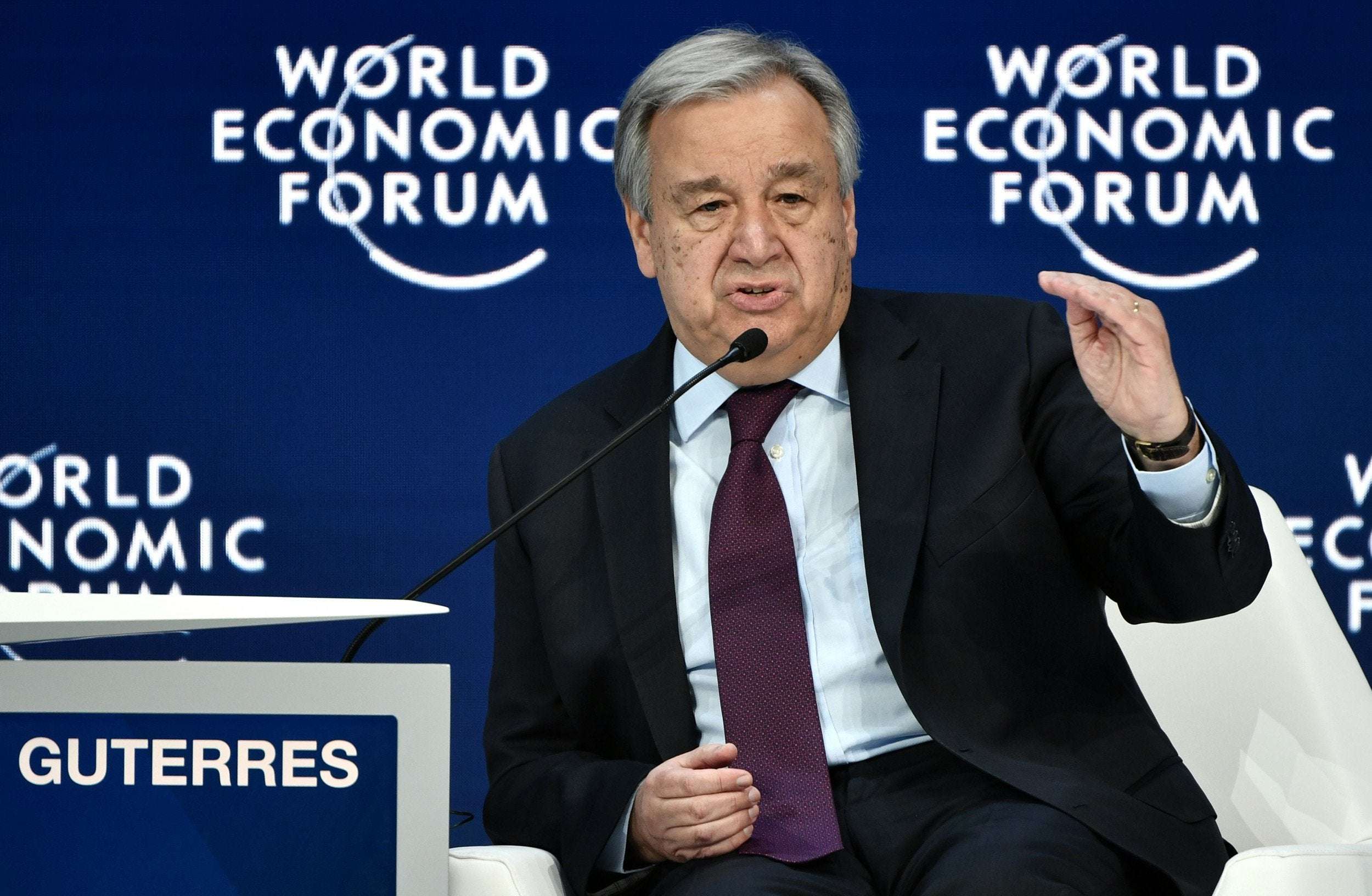The U.N. is looking to keep nations focused on efforts to fight the effects of climate change, with Secretary-General António Guterres urging governments to capitalize on their coronavirus pandemic rebuilding efforts by doing more to help the environment.
The U.N. leader spoke Monday during a virtual forum of small island states, where he said the devastation being caused by the virus should remind world leaders that such consequences will be far worse if they "retreat" on efforts to address climate change. In recent months, the U.N. conducted a survey of 40,000 people in 186 countries as part of an initiative marking the organization's 75th anniversary. The survey found that "climate" and "environment" topped the list of concerns that respondents believe will most affect humanity's future, followed by "conflicts" and "health risks."
Speaking just ahead of Earth Day on Wednesday, Guterres told the Alliance of Small Island States that the global community's "adaptation" and financial "resilience" in overcoming the pandemic should be continued in the fight against climate change.
"Currently, all eyes are on the COVID-19 pandemic, the biggest test the world has faced since the Second World War. We must work together to save lives, ease suffering, lessen the shattering economic and social consequences, and bring the disease under control," Guterres said. "But, at the same time, let us not lose focus on climate change. The social and economic devastation caused by climate disruption will be many times greater than the current pandemic."
Guterres stressed that he intends to rally international support for the Paris Agreement. The United States is set to officially withdraw from the climate accord one day after the November presidential election. President Donald Trump announced the withdrawal in June 2017, saying the agreement puts the U.S. at a "permanent disadvantage." Limiting global temperature rise to 1.5 degrees Celsius (2.7 degrees Fahrenheit) and international strategies for reaching net zero emissions were among the elements of the international agreement.
A recent Pew Research Center survey found that the percentage of Americans who say global climate change is a major threat to the well-being of the U.S. has increased, from 44 percent in 2009 to 60 percent this year. Among Democrat-leaning voters, 88 percent say climate change is a major threat, compared with 31 percent of Republican-leaning voters who say the same.
"By committing now to building back better from the pandemic, we can use the recovery from the effects of COVID-19 to secure a more sustainable and resilient future," Guterres said. "For that, we need ambitious climate action on mitigation, adaptation and finance."
The small island states in Monday's virtual forum have traditionally been at the front lines of climate change advocacy, given their immediate concern over rising sea levels. The secretary-general pledged the U.N.'s support in the fight against global warming and man-made pollution, vowing to obtain more international backing in the wake of the pandemic.
"It is essential that you are supported in your efforts to adapt and build resilience," he said. "I will continue to advocate for debt relief, including for middle-income countries, to enable you to survive both the impacts of COVID-19 and the growing threats of climate change," Guterres said.
The findings of the U.N.'s global survey, which asked respondents about "the world we want to create" by 2045, will be officially presented in September at the 75th anniversary of the organization's formation. The most unanimous response in the survey had 95 percent of respondents agreeing that international cooperation is "essential" to help fight climate change and health crises.

TipiWigWam1 on April 22nd, 2020 at 02:16 UTC »
10-20 years from now: "Nobody could have possibly seen this coming. "
bdnavy7 on April 21st, 2020 at 21:21 UTC »
Yea and how the world is handling this crisis currently does not bode well for how we work together in the future to combat climate change
throughpasser on April 21st, 2020 at 20:35 UTC »
Obviously. And that is what we really need to reduce our economic activity for.
But we have an economic system that won't let us stop producing more and more, even if a lot of it is just junk or trivial shit. It's got to keep growing, or rich peoples' capital starts depreciating.
So, as soon as this pandemic is over, it's all hands to the pump for perpetual growth. Until we come up with a better economic system. Which needs to be soon.